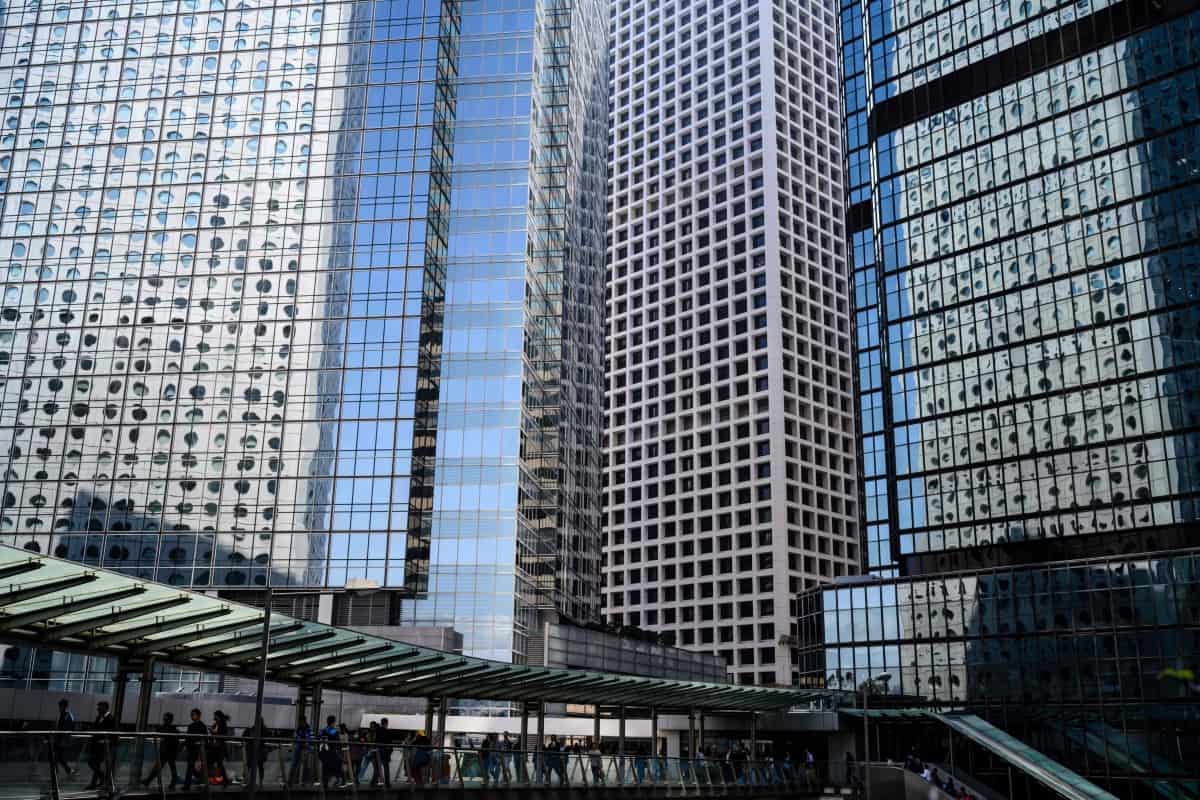Hong Kong and China stocks retreated at the lunch break on Tuesday, with US President Donald Trump’s latest threats to scale back economic ties between the United States and China, and a correction in technology stocks weighing on market sentiment.
The Hang Seng Index fell 0.6 per cent to 24,450.24, while the CSI300 index, which tracks the performance of the top 300 stocks on the Shanghai and Shenzhen markets, fell 0.5 per cent to 4,646.07. The Shanghai Composite Index was little changed, and was up 0.04 per cent.
Trump repeated on Monday a threat by his administration to decouple the US and Chinese economies, two of the world’s largest, and raised the possibility of halting business with Beijing altogether.
“With the US presidential elections nearing, there is a lot of uncertainty over Trump’s next move. Such as, whether he will continue to pose restrictions on more Chinese technology companies [or not],” said Stanley Chan, director of research at Emperor Securities. “This has put a lot of pressure on Chinese semiconductor and e-commerce firms recently.”
The two-month-old Hang Seng Tech Index of the top 30 technology stocks fell 2.8 per cent at the lunch break on Tuesday. It had risen by as much as 1.2 per cent in early trading after three consecutive days of declines. Chinese e-commerce giant Alibaba Group Holding slipped 0.8 per cent, while benchmark heavyweight Tencent Holdings fell 1.7 per cent. Alibaba owns the South China Morning Post.
Chinese semiconductor maker SMIC, which plunged 23 per cent on Monday on fears it might be blacklisted by the Trump administration, however, rebounded 1.1 per cent to HK$18.44 on Tuesday.
“Investors are still worried about whether technology stocks are facing a correction,” Chan said. “There will be some short-term rebounds in technology stocks, but some investors will take profits. The market has lost some of the previous momentum that took technology stocks to new highs.”Shares of Nongfu Spring, the hottest IPO in Hong Kong’s financial history, meanwhile, soared by as much as 85 per cent to HK$39.85 from their initial public offering price of HK$21.50 on Tuesday morning. The company’s retail shares were overbought by a record 1,147 times, locking up HK$677 billion (US$87 billion) in capital.
“Traders and investors alike may slowly but surely come around to the idea that last week’s market rout was tech sector-specific, rather than any real change in underlying sentiment,” said Stephen Innes, chief global markets strategist at AxiCorp.
In Hong Kong, smartphone maker Xiaomi led the losses with a 7.5 per cent drop. On the CSI300 index, beverage producer Hebei Yangyuan ZhiHui Beverage led the losses with a 9.4 per cent plunge.
Two stocks that were traded for the first time on Tuesday soared on their debuts on the Shanghai exchange. Fujian Foxit Software Development JSC, which provides electronic document software products, rose by as much as 55 per cent to 370 yuan from its listing price of 238.53 yuan. Textile product manufacturer ZhongWang Fabric gained 44 per cent from its IPO price of 25.75 yuan.

